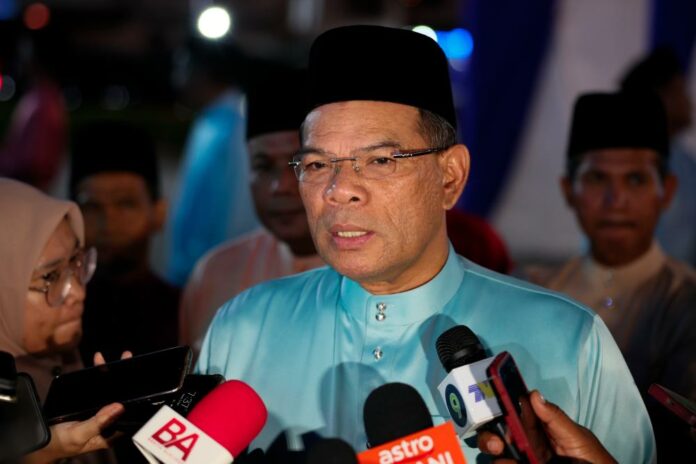PUTRAJAYA, May 9 — Any decision to allow refugees to be employed in any sector should be based on data prepared by the Home Ministry (KDN), said its Minister Datuk Seri Saifuddin Nasution Ismail.
He said that his ministry is now in an effort to conduct and collect data related to refugees, such as their gender, age and country of origin.
According to him, this follows the decisions made in the National Security Council (MKN) meeting and the recent Cabinet meeting.
“The KDN was given the responsibility to register refugees and issue them with a refugee card (refugee registration document). Previously, the government’s initiative was to appoint a third party (Refugee Information Tracking System – TRIS) but they could only register about 30,000 (individuals) compared with the data obtained from the United Nations High Commissioner for Refugees (UNHCR) (185,000 people).
“The gap is huge. The MKN made a decision that the KDN has to register the refugees, Hence, it starts with data, granular data. If we want to consider them in terms of job opportunities, so we have to start with data first,” he said.
Saifuddin Nasution said this to reporters after attending the Malaysian Maritime Enforcement Agency (MMEA) Aidilfitri open house at the agency’s headquarters, here, today.
He said that the Immigration Department was given the responsibility to register these refugees, and once they had been registered, the ministry could help find them employment.
“Once we get the registration numbers, instead of them looking for work, we can help them find employment, depending on the government’s policies and decisions. We are not yet in that direction; what is important now is the data,” he said.
Meanwhile, when asked to comment on the recent issue of refugee settlement in Penang, Saifuddin Nasution said that no party can act on its own, and only enforcement agencies are allowed to take action, such as the Royal Malaysia Police and the Immigration Department.
“Efforts are being made to manage to register the actual data of refugees for the government, which can be used to plan the next steps and engagement with the UNCHR for data sharing. This cooperation can help speed up the planning for refugees.
“Otherwise, we are allowing various issues to arise; local sentiments to swell. For now, it may be a small thing, but it cannot be allowed to fester, or be taken lightly,” he said.
















